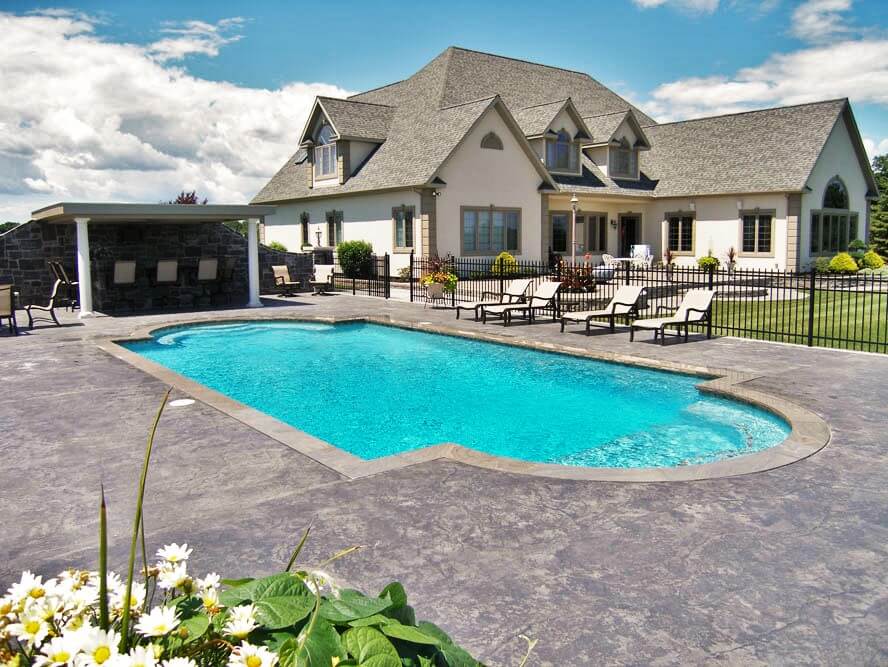Unlocking the Right Chemical Balance for Your Pool
Finding the right chemical balance is a prerequisite for maintaining a healthy and safe swimming pool. Not to mention, it’s critical for preserving your investment. The first step in unlocking your pool’s proper chemistry is to understand the chemical composition of a healthy pool.
It’s normal that unwanted items like debris, dirt, insects, and sunscreen make their way into your pool water. The point of chemical treatments is to continually combat harmful conditions and to provide sanitized conditions for swimming. The best way to go about keeping your swimmer’s safe is by using chlorine or another sanitizer to address the natural contaminants.
The Basic Five
When pool professionals refer to a balanced swimming pool, we are referring to the basic pool water components:
- Total Alkalinity
This number refers to how much alkaline is present in your pool water. An ideal pool should aim for a TA of 80pm which reduces PH “Bounce”. Low alkaline leads to low pH and likewise, high alkaline leads to high pH. - pH
Your pH level is important to keep the comfort of your swimmers and the health of your equipment. This number refers to the acidity of your pool. You should strive to keep your pool’s pH reading between 7.4 and 7.6. - Calcium Hardness
Optimal calcium hardness is generally within the 200-400 ppm range. If your pool’s water is too hard, it could form scale resulting in stains. Too little and your pool’s surface material can erode. If you have a salt chlorine generate (a salt water pool), some experts argue that calcium hardness levels should be significantly lower. Please speak to your pool professional! - Stabilizer
To retain chlorine levels, your pool requires a stabilizer. To combat the harmful effects of UV rays, a stabilizer can mitigate excessive chlorine use as it evaporates in the sunshine. A good target range is between 40-100 ppm. - Total Dissolved Solids
Any water contains dissolved minerals. What this means for your pool is that when the water evaporates, minerals can be left behind. When this happens day in and day out, you can end up with a concentrated amount of deposited minerals which can interfere with the chemicals you add to balance your water.
Have your water professionally tested at a pool store that has the proper software. The water should be analyzed by calculating how each component above effects one another, as well as how an adjuster effects all components. A pool store that tries to calculate these measurements manually, without proper software, may not be able to properly balance your pool.




